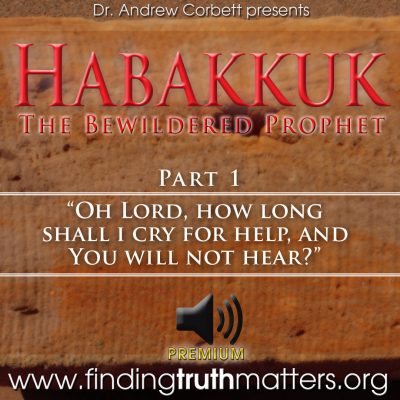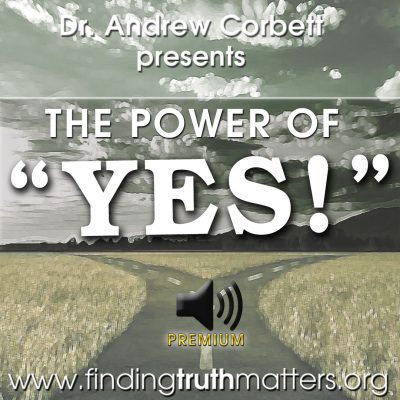home > articles > Great Conversions of The Bible
In 2006 a Australian Federal Parliamentarian declared he and his Party should be regarded as truly representing the Christian vote of Australians. He then went on to more or less state that his understanding of Christianity was not the same as that of Evangelicals- who regard conversion as an essential – instead, his idea of Christianity was one of improving social conditions and promoting wealth-equity throughout society. He seemed to be criticising Evangelicals for preaching a Gospel of “conversion”. He wanted to champion a Christianity after the fashion of the great Deitrich Bonhoeffer. Is conversion necessary or not to be an authentic Christian?

 In John Bunyan’s unequalled classic, Pilgrim’s Progress, he tells of a man named Pilgrim who starts a life journey after innocently praying. As a result of praying he becomes aware of a burden on his back which he then realised had always been there. It seems to Pilgrim as if the burden becomes increasingly heavier. No matter how hard he tries he cannot free himself from this burden. He embarks on a journey to find relief. He meets Evangelist who points him to a hill called Golgotha. It is there that he meets a Saviour and realises that this Saviour’s blood still flows. As he gazes into the face of the Saviour he is struck by the epiphany that this Saviour is dying for him. “For me He dies! For me He dies!” cries Pilgrim. And as the blood of the Saviour flows toward him the burden of sin, guilt and shame snaps off his back and rolls down the hill. At that point Pilgrim is converted!
In John Bunyan’s unequalled classic, Pilgrim’s Progress, he tells of a man named Pilgrim who starts a life journey after innocently praying. As a result of praying he becomes aware of a burden on his back which he then realised had always been there. It seems to Pilgrim as if the burden becomes increasingly heavier. No matter how hard he tries he cannot free himself from this burden. He embarks on a journey to find relief. He meets Evangelist who points him to a hill called Golgotha. It is there that he meets a Saviour and realises that this Saviour’s blood still flows. As he gazes into the face of the Saviour he is struck by the epiphany that this Saviour is dying for him. “For me He dies! For me He dies!” cries Pilgrim. And as the blood of the Saviour flows toward him the burden of sin, guilt and shame snaps off his back and rolls down the hill. At that point Pilgrim is converted!
So passionately did John Bunyan believe that Christianity could only be entered into via conversion that he was prepared to be jailed for that belief! It was in that prison cell that he wrote Pilgrim’s Progress which champions the Biblical doctrine that salvation was by God’s gifts of grace and faith resulting in: regeneration(conversion). Those who disagree with Bunyan about the need for conversion and yet still regard themselves as Christians are often happy to wear the label universalist. They regard that since one man, Adam, brought the world involuntarily into sin, likewise the whole world has been universally saved by one man: Jesus Christ.
And what a difference between our sin and God’s generous gift of forgiveness. For this one man, Adam, brought death to many through his sin. But this other man, Jesus Christ, brought forgiveness to many through God’s bountiful gift.
Romans 5:15

In resolving this dispute we must acknowledge that the stakes are potentially infintitely high! Eternal destinies are perhaps at risk by our opinions about this crucial matter. Our objective frame of reference and source of primary information to determine the truth of how we are saved is the Bible. Therefore, does the Bible really promote the concept of conversion unto salvation, or does the Bible present a universal salvation which makes conversion unnecessary?
 This debate is further confused by the experiences of some genuine Christians who either had a very dramatic conversion experience which they can identify occuring at a specific moment, and those Christians who have no idea when or if they ever had a conversion experience and could never identify a single moment when a conversion may have happened. So what do we mean when we say “converted”? It was perhaps Ezekiel who described it best when he prophesied about the salvation wrought by Christ-
This debate is further confused by the experiences of some genuine Christians who either had a very dramatic conversion experience which they can identify occuring at a specific moment, and those Christians who have no idea when or if they ever had a conversion experience and could never identify a single moment when a conversion may have happened. So what do we mean when we say “converted”? It was perhaps Ezekiel who described it best when he prophesied about the salvation wrought by Christ-
I will give you a new heart and put a new spirit within you; I will take the heart of stone out of your flesh and give you a heart of flesh.
Ezekiel 36:26
The New Testament develops the Bible’s description of this ‘newness’ with such contrasting metaphors as darkness to light –
He has delivered us from the domain of darkness and transferred us to the kingdom of his beloved Son
Colossians 1:13
But you are a chosen race, a royal priesthood, a holy nation, a people for his own possession, that you may proclaim the excellencies of him who called you out of darkness into his marvelous light.
First Peter 2:9
Death to life –
The sin of this one man, Adam, caused death to rule over us, but all who receive God’s wonderful, gracious gift of righteousness will live in triumph over sin and death through this one man, Jesus Christ.
Romans 5:17 (NLT)
We know that we have passed out of death into life, because we love the brothers. Whoever does not love abides in death.
First John 3:14
The universalist argues that this is everyone’s standing before God due to the Cross. The Evangelical argues that this is only the experience of the elect (that is, those who have accepted Christ and been spiritually regenerated by the Holy Spirit). The problem that the universalist faces in sustaining their case from Scripture is: Scripture. Scripture seems to present Christianity as commencing with a translation (from something to something else) experience. The metaphors that the Bible uses to describe this include, from death to life (Rom. 6:13), from darkness to light, fromthe domain of Satan to the Kingdom of God (Col. 1:13), from sin to holiness (Rom. 6:22).
 The Bible presents every person, despite their social standing, in need of salvation. In fact, all too often it is those who think that by virtue of their social standing they are more valuable to God- and therefore deserving of His salvation. Paul laments that-
The Bible presents every person, despite their social standing, in need of salvation. In fact, all too often it is those who think that by virtue of their social standing they are more valuable to God- and therefore deserving of His salvation. Paul laments that-
For you see your calling, brethren, that not many wise according to the flesh, not many mighty, not many noble, are called.
First Corinthians 1:26
Yet God can save anyone- even a King. In the Old Testament we have the account of the most wicked King eventually turning to God in repentance. His story is wonderful example of the greatest conversions in the Bible.
The story of King Manasseh is one of the saddest episodes of Judah’s history. He was born during Hezekiah’s, his father, final years, which were deplorably squandered by Hezekiah leaving Manasseh with little more than contempt for God. He demonstrated this contempt by committing some of the grossest acts of indecency and human rights violations imaginable. Perhaps the most vile of these included his assassination of Isaiah the prophet. This is the Talmudic account of that murderous rampage (which should be considered legendary rather than mythical) –
Manasseh killed Isaiah. Manasseh said to Isaiah, “Moses, thy master, said, ‘There shall no man see God and live’ [Ex. xxxiii. 20, Hebr.]; but thou hast said, ‘I saw the Lord seated upon his throne'” (Isa. vi. 1, Hebr.); and went on to point out other contradictions—as between Deut. iv. 7 and Isa. lv. 6; between Ex. xxxiii. 26 and II Kings xx. 6. Isaiah thought: “I know that he will not accept my explanations; why should I increase his guilt?” He then uttered the Unpronounceable Name, a cedar-tree opened, and Isaiah disappeared within it. Then Manasseh ordered the cedar to be sawn asunder, and when the saw reached his mouth Isaiah died; thus was he punished for having said, “I dwell in the midst of a people of unclean lips” (Yeb. 49b).
The Jewish Encyclopaedia

 >
> >
>
Manasseh sacrificed his children in illegal and pagan rituals. He established and promoted lewd sexual activity, called “the high places” all in the name religious practice He brought pagan objects of worship into the Temple precinct which may have seemed to bring some degree of legitimacy to His wickedness.
And he did what was evil in the sight of the LORD, order accutane dosage online according to the abominations of the nations whom the LORD drove out before the people of Israel. For he rebuilt the high places that his father Hezekiah had broken down, and he erected altars to the Baals, and made Asherahs, and worshiped all the host of heaven and served them. And he built altars in the house of the LORD, of which the LORD had said, “In Jerusalem shall my name be forever.” And he built altars for all the host of heaven in the two courts of the house of the LORD. And he burned his sons as an offering in the Valley of the Son of Hinnom, and used fortune-telling and omens and sorcery, and dealt with mediums and with wizards. He did much evil in the sight of the LORD, provoking him to anger.
Second Chronicles 33:2-6
Many people today are justifying their sexual proclivities, ‘religiousising’ their worldview, and excusing themselves from the ordinary standards of decency- especially when it comes to the weakest and most vunerable in our society: children. This is what Manasseh did.
 But God knew what it would take to bring Manasseh to repentance! You may be praying for a strayed loved one to turn to Christ and think they are beyond redemption. But God thinks otherwise! he knows how to bring them home.
But God knew what it would take to bring Manasseh to repentance! You may be praying for a strayed loved one to turn to Christ and think they are beyond redemption. But God thinks otherwise! he knows how to bring them home.
Firstly, we notice that God spoke to Manasseh and Judah.
The LORD spoke to Manasseh and to his people, but they paid no attention.
Second Chronicles 33:10
This was most probably and at least through Isaiah the prophet. But Manasseh and Judah and would not listen to God. We then observe that God gave them over to their enemies. In this sense, God “sent” their enemies to attack them-
Therefore the LORD brought upon them the commanders of the army of the king of Assyria, who captured Manasseh with hooks and bound him with chains of bronze and brought him to Babylon.
Second Chronicles 33:11
This is reminiscent of what Paul wrote in Romans 1 where it says that certain people who rebelled against God’s will and continually refused to repent were “given up” by God to fully indulge their sin-
Therefore God gave them up in the lusts of their hearts to impurity, to the dishonoring of their bodies among themselves,
Romans 1:24
When the Assyrians came and attacked Manasseh and took him captive, this was a great tragedy. We don’t often associate tragedy with God’s gracious dealings. But God knew that this is what it would take to bring Manasseh to repentance. It’s often amazing how things sometimes seem to turn for the worse when we pray for someone to turn to God. I have read this passage perhaps hundreds of times. When I ponder this episode I wonder what Isaiah did prior to his execution. I wonder whether he prayed for Manasseh. I wonder he prayed for Manasseh to repent. If so, the events that transpired almost immediately after his death were an unforeseeable answer to prayer. God used tragedy to humble Manasseh and bring him to repentance.
 It appears in Scripture that God generally uses three broad approaches to lead people to repentance. Firstly, Romans 2:4 says that God uses kindness to lead people to repentance.
It appears in Scripture that God generally uses three broad approaches to lead people to repentance. Firstly, Romans 2:4 says that God uses kindness to lead people to repentance.
Or do you presume on the riches of his kindness and forbearance and patience, not knowing that God’s kindness is meant to lead you to repentance?
Romans 2:4
Secondly, it appears that God uses miracles to bring people to repentance. Christ expresses His disappointment that many of the cities in which He performed miracles did not repent-
Then Jesus began to denounce the cities where he had done most of his miracles, because they hadn’t turned from their sins and turned to God.
Matthew 11:20
Thirdly, God uses tragedy to bring people to repentance. We see this in the life of Manasseh and the events that transpired in Jerusalem leading up to 70AD during the 42 month bombardment and attack by the Romans in which Israel experienced its great tribulation spoken of by Christ in Matthew 24. The Book of Revelation put it this way-
Everyone was burned by this blast of heat, and they cursed the name of God, who sent all of these plagues. They did not repent and give him glory.
Revelation 16:9
 It could be argued that God used at least two of these three means, and possibly all three, to bring Manasseh to repentance. What Jeremiah doesn’t record in Second Kings, Ezra draws the attention of the reader to in Second Chronicles. Manasseh humbled himself, prayed to God, repented, and confessed his need for God.
It could be argued that God used at least two of these three means, and possibly all three, to bring Manasseh to repentance. What Jeremiah doesn’t record in Second Kings, Ezra draws the attention of the reader to in Second Chronicles. Manasseh humbled himself, prayed to God, repented, and confessed his need for God.
And when he was in distress, he entreated the favor of the LORD his God and humbled himself greatly before the God of his fathers.
He prayed to him, and God was moved by his entreaty and heard his plea and brought him again to Jerusalem into his kingdom. Then Manasseh knew that the LORD was God.
2Chronicles 33:12-13
Manasseh’s conversion resulted in him reforming religious activity in Judah. He rebuilt the Temple altars and made repairs to the House of the Lord. His conversion was so dramatic that it should be regarded as one of the greatest conversions of the Bible. His conversion should encourage the modern believer to keep praying for those who do not know God. It should similarly encourage those who have doubts about God to experiment with prayer. Secondly, Manasseh’s conversion should give us reason to have hope for a better future for ourselves and our communities because it shows us the extraordinary lengths that God will go to, to rescue people from seemingly hopeless situations.
God is in the business of conversion. He loves to convert people. He loves to rescue those who cry out to Him in humility. To those people, including Parliamentarians, who ridicule us Evangelicals for promoting Christianity as a matter of conversion, Manasseh presents a problem. But not only Manasseh, several others as well, which we explore in further installments. It might also be worth noting that Deitrich Bonhoeffer would sound a loud “Amen!” He made this extremely clear in his book “Life Together” where he stressed the need for conversion and pointed out that the Christian community should only be considered as being constituted of those who have been converted. It is my prayer that we will see many thousands of people authentically converted to Christ all around the world.
Amen.
© Dr. Andrew Corbett, November 23rd 2006













































0 Comments